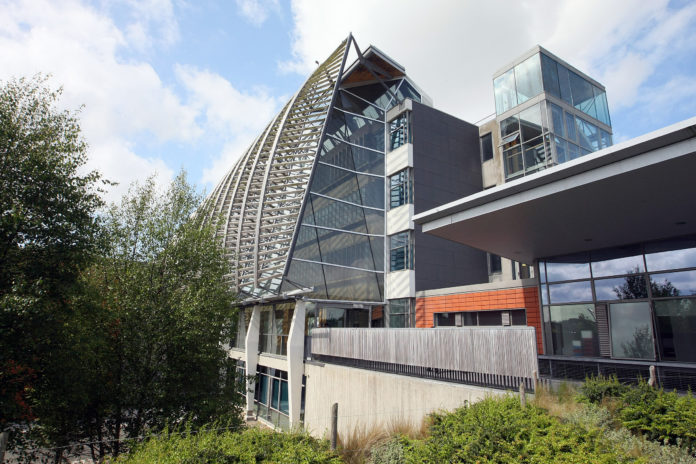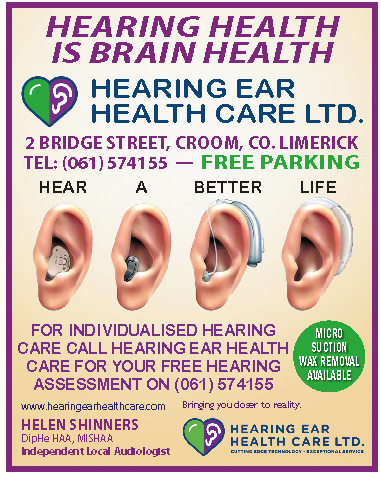
SIPPING in a much-loved local establishment over the weekend, I hear the opening lines of a joke: “How many councillors does it take to solve the hospital crisis?”
I’ll have to stop you right there fellas. There’s no punchline to this one if you ask me.
Other than give their tuppence-worth at council meetings over the overcrowding crisis, they have absolutely have no skin in this sad game. They are as frustrated as the rest of us over the state of our hospital, but this is one mess we can’t hold them to account for.
Heads will roll, but it won’t be theirs.
Four years ago next month, CEO of University Hospital Limerick Group Professor Colette Cowan told councillors during a presentation in City Hall that constant media and public adversity was one of the main challenges facing staff at UHL (besides the obvious, one would hope).
The hospital, she told council members in office at the time, “gets pillared a lot” by the press.
“It is very difficult for staff that have to read the same story over and over, which is not good for morale,” she continued.
Considering that the hospital and HSE, even back then, had more journalists working in their communications department than there is in the entire local media, her words rang shallow and resonated of clutching at straws.
As much as you can’t blame the councillors for this one, Prof Cowan, you can’t blame the press either.
The press don’t always get it right, sure, but we have a job to do. So nitpicking over our part in the hospital’s public image challenge stinks of desperation, all things considering.
Four years on, journalists are still writing about the overcrowding week in, week out. Nothing has changed, so why wouldn’t we?
Councillors in Limerick’s Metropolitan District requested the meeting with Professor Cowan back in February 2018 in a bid to address the on-going overcrowding crisis at UHL.
Forty seven months on and it is the same old shit show, and councillors, as often as we give out about them, are just as frustrated as everyone else. This is one mess they have absolutely no say in whatsoever.
Councillors have no say in the running of the hospital, in how plans are made, in how budgets are spent, and in how the broken winter plan is decided. Many councillors are blue in the face from raising the issue with their party colleagues who actually are responsible for having the voice of the electorate heard at national level.
“One particular TD spends more time doing the work of councillors and interfering with council issues than looking at his own chamber — The Dáil . Up on the train to sign in and back the same day to interfere with council business,” one councillor told me this week.
“Councillors can’t go to the Dáil and interfere with national issues. Why then can TDs and Senators try to medal in council business?
“If TDs and Senators spent more time passing laws to examine how broken the health system is, we wouldn’t have the extremely broken health and political system presently.”
When pressed for a comment on the management of UHL, they said: “As my mother said, “if you can’t say anything nice, don’t say anything at all.”
Ouch!
Back to the right honourable Prof Cowan. Addressing councillors in City Hall during her presentation in 2018, she explained that UHL are the first point of contact when they should be the last.
“Footfall is high constantly and we do not have the capacity to meet the demand. No one gets a break.”
She also called for support in promoting a positive image for the hospital and said that patient care was at the centre of all they do. I mean, one would hope so, no?
She went on to highlight developments for the future, which included the relocation of the maternity hospital, enhanced day surgeries in Nenagh and Ennis hospitals, the redevelopment of Croom Orthopaedic Hospital and the National Development Plan for a 96-bed block at UHL, which work finally started on last October.
The consensus in City Hall during that presentation was that any day is a bad day when someone is on a trolley, which, consequently, makes every day a bad day in UHL.
So, how do we get to a good day then?
Well, apologies from UHL won’t fix the overcrowding crisis, despite the heroic efforts of their frontline staff.
Every house in the Mid West has a tale of woe from the emergency department at this stage.
Councillors have no say, so we can’t blame them, and government politicians are mostly talking out of their backsides on the matter. Of course, using the issue as a political ping pong ball doesn’t help much either.
Last month, Limerick Independent TD Richard O’Donoghue made a call during Taoiseach’s question time for the management team at UHL to step down.
In a scathing attack on the hospital, he alleged that there have been “cover ups” and that the more than 70 doctors who wrote an open letter, warning of dangers to the lives of patients, have “been silenced”.
That said, then Tánaiste Leo Varadkar urged Deputy O’Donoghue to make any evidence of cover ups available to the regulatory authority.
Aontú say they have received data showing that there were 35 patients under the care of the UL Hospital Group who were clinically discharged but remain in the hospital, and that two such patients had been clinically discharged in excess of six months yet remain in hospital.
“If we could find a prompt and effective solution to our home-help and respite services, we could ensure that people who have been discharged from hospital are able to physically leave the hospital and go home – achieving this would immediately free up a significant number of beds in the hospitals,” a statement from the party said.
And while it is easy to lay all the blame at the hospital’s door, what have the Government and its Health department done to rectify the ongoing saga at UHL?
Last week a “major internal incident” was declared at UHL due to increasing patient numbers and a pilot project commenced this Monday to help alleviate overcrowding at the Limerick hospital. Instead of patients waiting on a trolley at UHL, as part of plans to ease record breaking overcrowding at its emergency department, they can now be transported directly to the Medical Assessment Unit in Ennis Hospital or referred by GPs to the MAU in St John’s.
Councillors have long called for St John’s Hospital, as well as Ennis, and Nenagh hospitals, to be made fully functional. Is it – I can’t believe I’m saying this – finally time to start listening to them? Desperate major internal incidents call for desperate measures.









